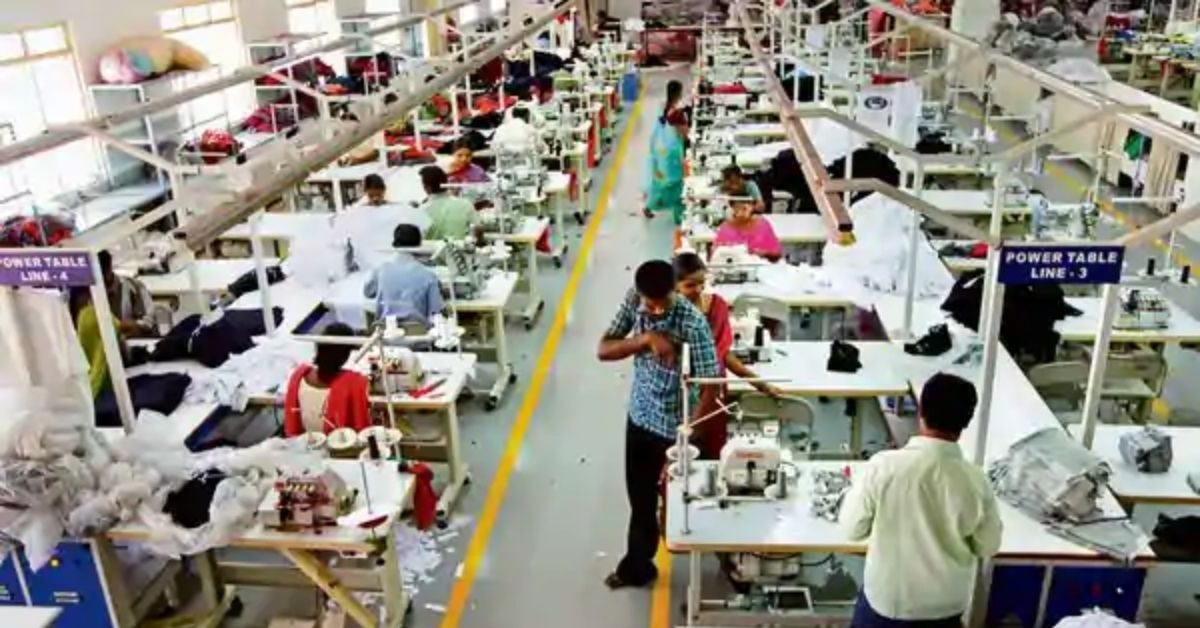Textile millers and garment manufacturers yesterday demanded that the government impose value-added tax (VAT) of Tk 3 on the sales of every kilogramme of all kinds of yarns, including that of manmade fibres, to facilitate product diversification.
Currently, the rate has been set by the National Board of Revenue (NBR) on sales of yarn made of cotton fibres inside the country.
But millers who produce yarn from manmade fibres have to pay Tk 6 per kg as VAT on sales.
Similarly, millers who make fabrics from manmade fibres have to pay a 5 per cent VAT at the production level whereas those using cotton fibres need not.
Such kind of discrimination has been acting as a barrier in product diversification, discouraging manmade fibre importers.
In Bangladesh local yarn and fabrics manufacturers are very much dependent on cotton fibres, using it in a mix where manmade fibres account for just 20 per cent.
However, the international scenario is different. In the global fashion industry, 28 per cent of the mix is cotton fibre.
This is why product diversification within the garment sector has not been taking place and Bangladesh is still struggling with basic garment items and lower prices from the international retailers and brands.
China, Vietnam, Cambodia and India have been performing strong with manmade fibres and their garment exporters have been receiving premium prices from international clothing retailers and brands.
“We want the government to fix a uniform rate on sales of all kinds of yarn and fabrics,” said Bangladesh Textile Mills Association (BTMA).
“There should not be any discrimination between any kind of yarn and fabrics,” it said in its pre-budget proposal to the NBR at a meeting in Dhaka.
The Bangladesh Garment Manufacturers and Exporters Association (BGMEA) and Bangladesh Knitwear Manufacturers and Exporters Association (BKMEA) also submitted their proposals.
Leaders of all three trade bodies urged reducing source tax to 0.25 per cent from the existing rate of 0.50 per cent for at least five years.
The primary textile millers also demanded withdrawal of a 5 per cent advance tax on import of polyethylene terephthalate (PET) chips which are used to make yarn in the production of garment items.
They also demanded withdrawal of a 10 per cent tax on 4 per cent cash incentive provided against export receipts.
Among their major demands, the textile millers also urged allowing duty free import of spare parts of textile machinery on the basis of certification from the BTMA.
The BGMEA demanded withdrawal of VAT on purchases of all kinds such as expenditures on subcontracting, printing, courier services and fees on lawyers and architects for the purpose of export.
The garment trade body also demanded facilities on import of fire extinguishing products for the expansion of factory operations.
The local garment manufacturers should also be facilitated so that they can get subcontracts from factories housed inside export processing zones, said the BGMEA.
Both the BGMEA and BKMEA demanded withdrawal of certification on import and installation of capital machinery. They also sought relief from submission of VAT return certificates, reasoning it was an additional pressure on exporters.
The BKMEA demanded duty-free import of chemicals used in running effluent treatment plants to save the environment.
BGMEA President Rubana Huq, BTMA President Mohammad Ali Khokon and BKMEA Vice-President Mohammad Hatem also spoke at the meeting with NBR Chairman Abu Hena Md Rahmatul Muneem in the chair.
Source: The Daily Star








